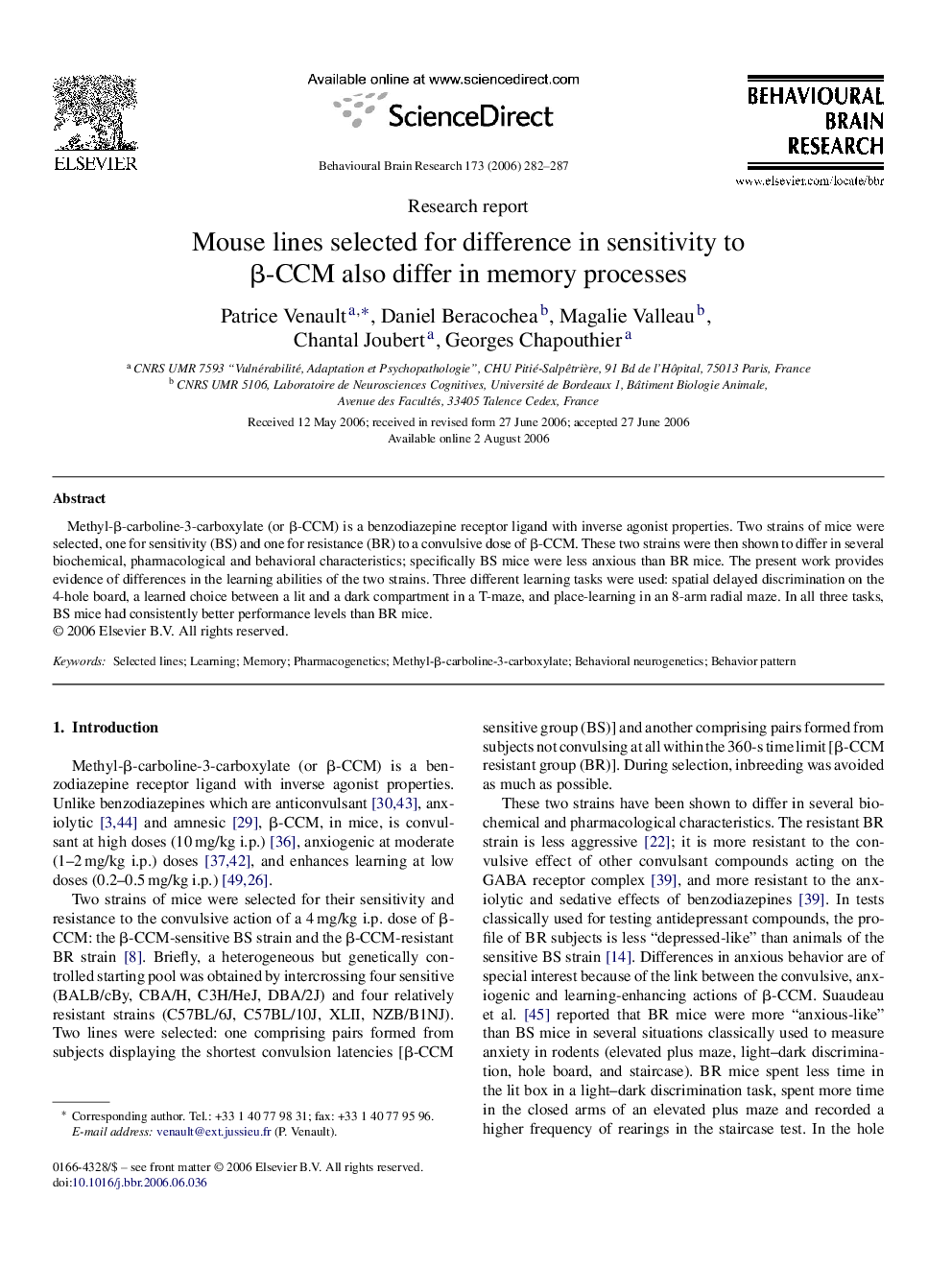| Article ID | Journal | Published Year | Pages | File Type |
|---|---|---|---|---|
| 4316051 | Behavioural Brain Research | 2006 | 6 Pages |
Methyl-β-carboline-3-carboxylate (or β-CCM) is a benzodiazepine receptor ligand with inverse agonist properties. Two strains of mice were selected, one for sensitivity (BS) and one for resistance (BR) to a convulsive dose of β-CCM. These two strains were then shown to differ in several biochemical, pharmacological and behavioral characteristics; specifically BS mice were less anxious than BR mice. The present work provides evidence of differences in the learning abilities of the two strains. Three different learning tasks were used: spatial delayed discrimination on the 4-hole board, a learned choice between a lit and a dark compartment in a T-maze, and place-learning in an 8-arm radial maze. In all three tasks, BS mice had consistently better performance levels than BR mice.
